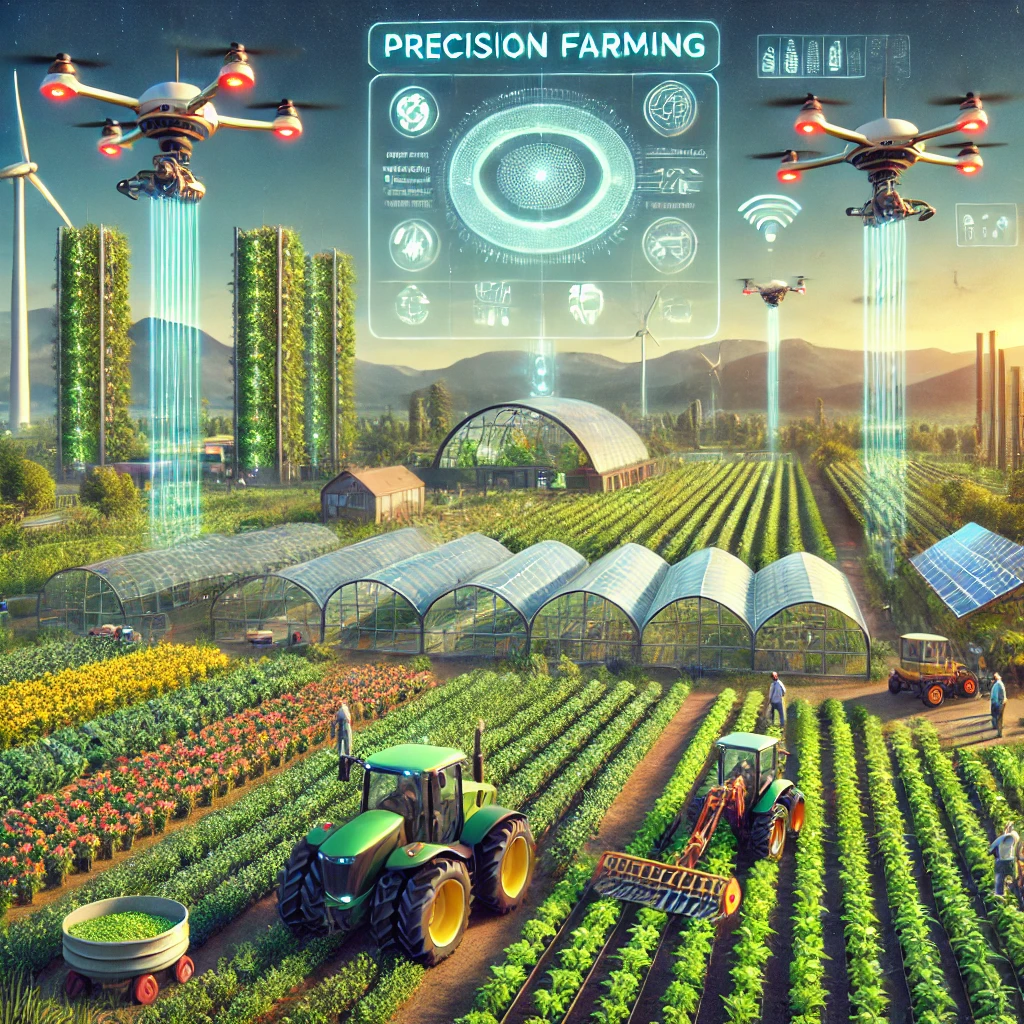User Ideas / Prospects
Tag search results for: "automation and robotics"
The future of agricultural engineering is poised for significant transformation as it integrates more advanced technologies and adapts to global challenges such as climate change, resource scarcity, and population growth. Some key trends and technologies shaping the future of agricultural engineering include:
1. Precision Agriculture- Key Technologies: GPS, drones, and satellite imagery will continue to be integrated with farming equipment to precisely monitor crop conditions, soil moisture levels, and other critical factors. This approach allows for optimized input usage (water, fertilizers, pesticides) and higher crop yields.
- Impact: Precision agriculture can improve efficiency and sustainability by reducing waste and increasing productivity. With AI-powered analytics, farmers can make real-time decisions based on data.
- Future Prospects: The increasing affordability and accessibility of sensors and AI tools will make precision agriculture more widespread across both large-scale and smallholder farms
.
- Key Technologies: Autonomous tractors, harvesters, and weeding robots are becoming more common. These machines reduce labor costs and increase productivity, particularly in regions facing labor shortages.
- Impact: Automated equipment can work around the clock, which is especially important for time-sensitive farming operations such as planting and harvesting. Robots can also perform tasks such as weeding or fruit picking, which traditionally require manual labor.
- Future Prospects: As robots become more sophisticated, they will handle even more complex agricultural tasks, such as precision planting and selective harvesting.
- Key Technologies: Vertical farming uses LED lighting, hydroponic or aeroponic systems, and climate-controlled environments to grow crops in urban areas. CEA includes greenhouses and indoor farms that can produce food year-round, regardless of outdoor conditions.
- Impact: Vertical farms reduce land usage and transportation costs, while CEA systems can produce higher yields with fewer inputs. This is critical for feeding growing urban populations sustainably.
- Future Prospects: As urbanization increases, vertical farming could become a key solution to local food production. Innovations in LED technology, energy efficiency, and water recycling will make this approach more economically viable .
- Key Technologies: Sustainable agriculture involves using renewable energy (solar, wind), reducing water and fertilizer use, and implementing crop rotation and conservation tillage.
- Impact: These practices can help reduce greenhouse gas emissions, improve soil health, and protect biodiversity.
- Future Prospects: Governments and global organizations are likely to promote policies supporting sustainable practices, with a strong focus on carbon-neutral farming .
- Key Technologies: Genetic modification (GM), CRISPR gene editing, and other biotechnologies will allow for the creation of crops that are more resistant to drought, pests, and diseases. This will be critical in adapting to the effects of climate change.
- Impact: These innovations could lead to higher crop yields, improved nutritional quality, and crops that require fewer inputs such as water and pesticides.
- Future Prospects: Biotechnology will continue to evolve, potentially allowing for even more precise manipulation of crop genomes to suit specific environmental conditions .
- Impact: Technologies like drought-resistant seeds and precision irrigation systems will allow farmers to continue growing crops in increasingly hostile environments.
- Future Prospects: Climate change is a major driver of innovation in agricultural engineering, and research will likely focus on ensuring that farming systems can withstand environmental stresses .
In conclusion, agricultural engineering has very bright future that heavily incorporates automation, data-driven farming, sustainability, and biotechnology. These advancements will allow farmers to produce more food with fewer resources, reduce environmental impact, and adapt to the growing challenges of climate change.

